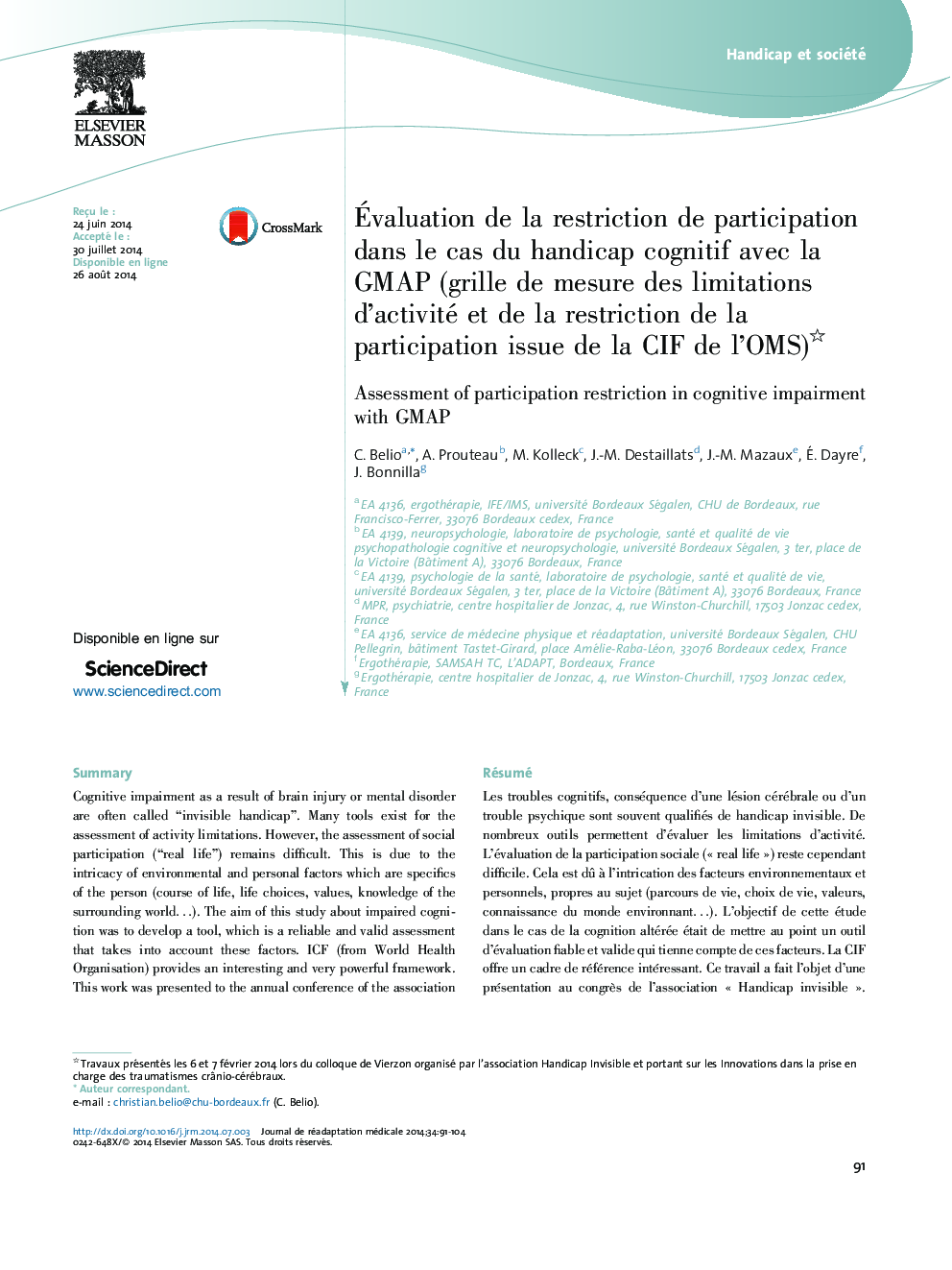| Article ID | Journal | Published Year | Pages | File Type |
|---|---|---|---|---|
| 2703503 | Journal de Réadaptation Médicale : Pratique et Formation en Médecine Physique et de Réadaptation | 2014 | 14 Pages |
Abstract
Cognitive impairment as a result of brain injury or mental disorder are often called “invisible handicap”. Many tools exist for the assessment of activity limitations. However, the assessment of social participation (“real life”) remains difficult. This is due to the intricacy of environmental and personal factors which are specifics of the person (course of life, life choices, values, knowledge of the surrounding worldâ¦). The aim of this study about impaired cognition was to develop a tool, which is a reliable and valid assessment that takes into account these factors. ICF (from World Health Organisation) provides an interesting and very powerful framework. This work was presented to the annual conference of the association “Handicap invisible.” We described the process of building GMAP and some of the first results. We will illustrate from an example reported by one interviewee, what we can call “Handicap invisible”. Interviewing strategies used by the person against real or perceived attitudes of his entourage GMAP accurately describe the capabilities of the person and his actual level of participation in society. With everyday life situations reflecting his life organization, GMAP appears a very informative social participation restriction “screening” tool.
Keywords
Related Topics
Health Sciences
Medicine and Dentistry
Orthopedics, Sports Medicine and Rehabilitation
Authors
C. Belio, A. Prouteau, M. Kolleck, J.-M. Destaillats, J.-M. Mazaux, Ã. Dayre, J. Bonnilla,
